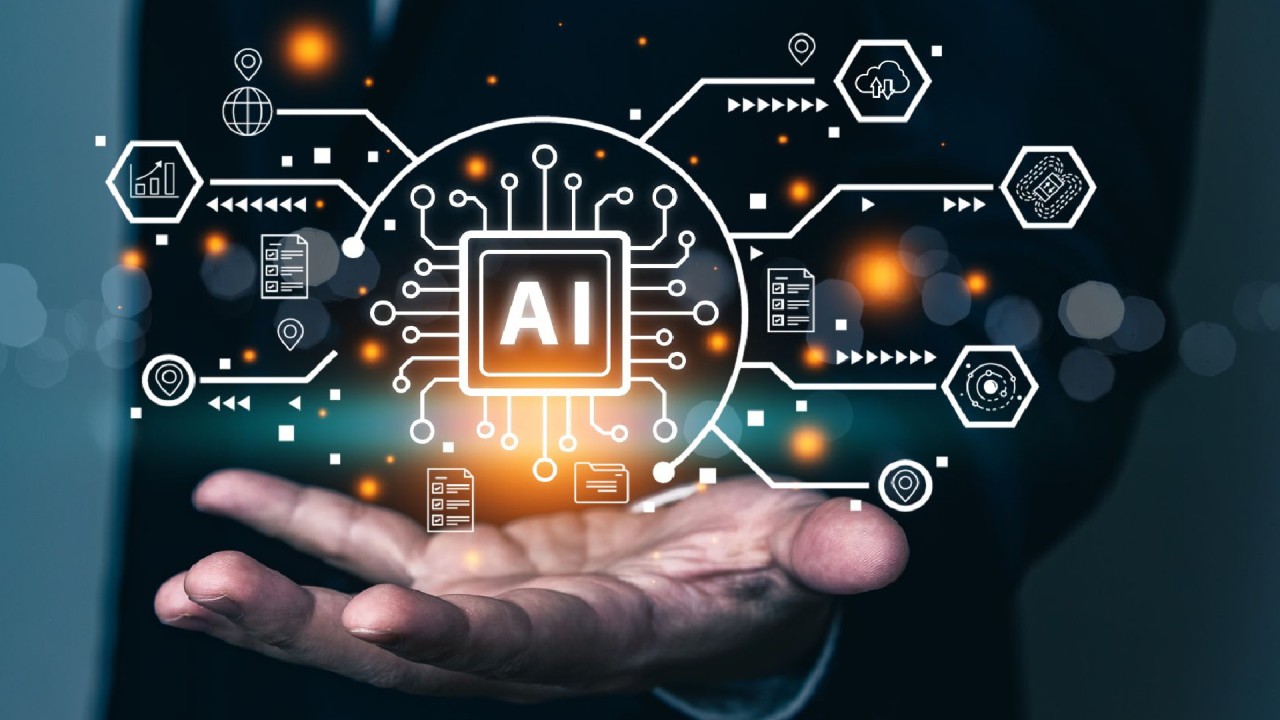Blog Details
How AI-Powered Applications Are Transforming Small and Medium-Sized Enterprises (SMEs) in 2025

Artificial Intelligence (AI) is no longer a luxury reserved for tech giants — it has become an essential driver of innovation and competitiveness for small and medium-sized enterprises (SMEs). In 2025, AI-powered applications are reshaping how SMEs operate, automate, and scale, helping them compete effectively in a rapidly digitalized world.
From personalized customer experiences to predictive analytics, AI enables SMEs to make data-driven decisions, reduce operational costs, and improve efficiency. What was once considered futuristic is now accessible through cloud platforms, open-source frameworks, and no-code tools — empowering even small businesses to harness AI\'s transformative power.
The Role of AI in Empowering SMEs
For SMEs, adopting AI is not about replacing humans — it\'s about augmenting their capabilities. AI solutions automate repetitive tasks, uncover valuable insights from data, and enhance decision-making. In today\'s competitive market, the ability to analyze customer behavior, forecast demand, and personalize offerings can define an SME’s success.
Key benefits AI brings to SMEs include:
- Operational Efficiency: Automating back-office tasks like bookkeeping, invoicing, and HR reduces workload and human error.
- Customer Insights: AI-driven analytics identify trends, predict churn, and personalize engagement.
- Cost Reduction: Cloud-based AI tools eliminate the need for expensive infrastructure.
- Smarter Decision-Making: Predictive models enable data-informed strategies rather than guesswork.
- Enhanced Marketing: Machine learning algorithms improve ad targeting, segmentation, and conversion rates.
Process Story: Implementing AI in a Growing Retail SME
A few years ago, I consulted for a mid-sized retail startup struggling with inventory management and customer retention. They used spreadsheets for tracking sales and manually planned stock orders. The inefficiency led to overstocking, lost sales, and wasted capital.
We introduced an AI-powered demand forecasting system built using Python, TensorFlow, and Next.js for the dashboard interface. The system analyzed historical data, seasonal patterns, and external variables such as holidays and local events. Within six months, stock accuracy improved by 38%, waste reduced by 25%, and customer satisfaction increased significantly.
This experience taught me that AI isn’t about replacing existing workflows — it’s about optimizing them intelligently and sustainably.
Key Areas Where AI is Revolutionizing SMEs
1. Customer Relationship Management (CRM)
AI-powered CRMs like HubSpot, Zoho, and Salesforce Einstein automate customer segmentation, predict lead conversion likelihood, and recommend follow-up actions. SMEs can now leverage natural language processing (NLP) to analyze customer emails and messages for sentiment and urgency — something once only possible for large enterprises.
2. Marketing Automation
AI tools enable SMEs to run smarter, data-driven marketing campaigns. For instance, platforms like Mailchimp and Hootsuite use machine learning to optimize send times and predict campaign performance. SMEs can deploy chatbots powered by OpenAI APIs to handle FAQs and improve engagement on websites or social channels.
3. Predictive Analytics and Business Intelligence
Predictive analytics tools such as Google Cloud Vertex AI and Microsoft Azure ML provide SMEs with insights once accessible only to data science teams. AI models can forecast sales, identify potential risks, and recommend actionable steps. Integrating these insights with Next.js dashboards gives business owners a clear, visual representation of future trends.
4. AI-Powered Customer Support
AI chatbots and virtual assistants are now integral to customer service. SMEs can deploy low-code tools like Dialogflow or ChatGPT integrations to provide 24/7 support without hiring large teams. These bots handle common inquiries, freeing up staff to focus on complex issues and personalized service.
5. Intelligent Automation in Operations
AI-driven automation can streamline logistics, HR, and accounting. Tools like QuickBooks AI automate bookkeeping, while HR systems use machine learning to screen resumes efficiently. For SMEs, automation reduces manual workload and creates room for strategic growth.
Bridging the Gap: AI Accessibility for SMEs
One major misconception is that AI implementation is expensive or requires a dedicated team of data scientists. However, with today\'s tools and APIs, small businesses can adopt AI incrementally and affordably. Frameworks like TensorFlow.js, Hugging Face, and OpenAI’s GPT models make integration seamless for developers familiar with JavaScript or Python.
For example, a developer can embed a lightweight recommendation engine directly into a Next.js e-commerce platform using pre-trained models from Hugging Face. Cloud services like AWS AI and Google AutoML handle training and scalability — allowing SMEs to benefit from AI without heavy technical overhead.
AI Ethics and Responsible Implementation
While AI adoption grows, SMEs must also prioritize transparency and ethical practices. Collecting and using data responsibly builds customer trust and compliance with regulations like GDPR. Bias mitigation in AI models, clear opt-in consent for data collection, and explainable AI interfaces are crucial for sustainable growth.
Challenges in AI Adoption for SMEs
Despite the benefits, many SMEs face barriers to AI adoption, such as:
- Limited awareness and technical expertise.
- Concerns over data privacy and security.
- Difficulty integrating AI into legacy systems.
- Perceived high cost of implementation.
These challenges can be addressed through training, partnerships with AI solution providers, and leveraging open-source frameworks to reduce costs.
Key Takeaways for SME Leaders
- AI is no longer optional — it’s a growth multiplier for SMEs in every sector.
- Start small: automate repetitive tasks before scaling to predictive models.
- Use pre-trained AI models to save time and reduce development complexity.
- Focus on responsible, data-driven decisions that enhance customer value.
- Collaborate with developers and technology partners who understand both AI and business objectives.
In conclusion, AI-powered applications are transforming SMEs by making innovation accessible, affordable, and actionable. From intelligent automation to customer insight generation, AI bridges the gap between efficiency and creativity — enabling small businesses to thrive in the digital-first economy. As developers, our responsibility is to build solutions that empower SMEs to compete smartly, ethically, and sustainably in the AI era.
Learn more about responsible AI and SME transformation at IBM Watsonx for Business.
